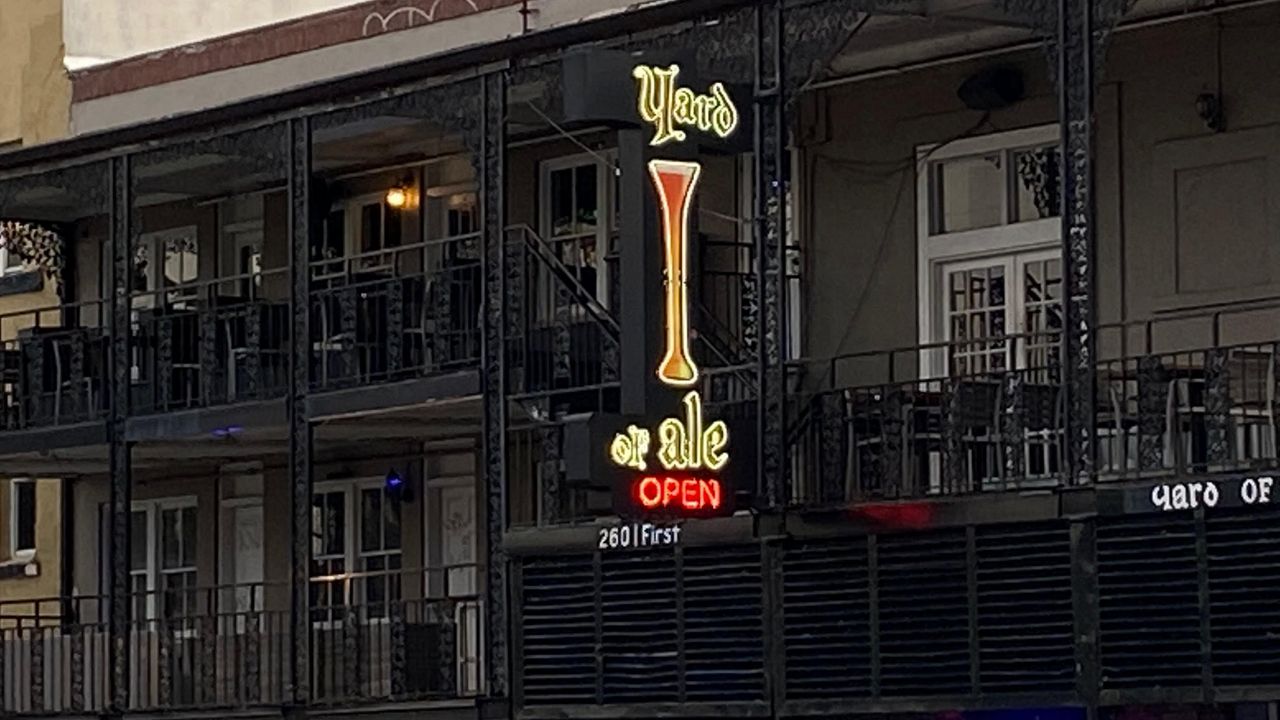ST. PETERSBURG, Fla. — Last week, as images of nightspots overcrowded with unmasked revelers continued to make the rounds on social media, Tampa Mayor Jane Castor publicly pondered the possibility of tougher penalties for businesses in noncompliance with the city’s COVID-19 protocols. December had seen an uptick in citations among bars and clubs—particularly in Ybor City—and the mayor was weighing the possibility of suspending or even revoking alcohol sales permits during the pandemic.
What You Need To Know
- St. Petersburg recently handed more severe punishment to two downtown bars for COVID noncompliance
- Some businesses have been cited multiple times
- Mayor Rick Kriseman says some businesses see citiations as just "the cost of doing business"
Meanwhile, on the other side of the bay, the City of St. Petersburg suspended for one month an extended hours permit allowing downtown bar Yard of Ale to serve alcohol after midnight, in the wake of the establishment’s five citations for violating COVID protocols. Shortly thereafter, on Wednesday, January 13, the city announced its intent to take to the courts and pursue temporary injunctive relief against another downtown watering hole, Five Bucks Drinkery, which has been cited at least four times for noncompliance—a move which could force the bar to adhere to emergency orders or face much more severe consequences.
(UPDATE: The city's lawsuit against Five Bucks Drinkery was dropped on Thursday after the restaurant introduced a new plan for following COVID protocols.)
This may seem like another level of crackdown in the ‘Burg, but in truth these steps have always been on the table.
“For us it wasn’t a matter of whether we thought more was needed, it was a matter of being able to under our ordinance be able to take additional steps,” says St. Petersburg Mayor Rick Kriseman.
To date, the City of St. Petersburg has handed out more than 200 citations for noncompliance, and at some point the city had to confront the idea that noncompliant businesses had begun to accept the fines as a sort of coronavirus tax.
“Some of these businesses were receiving their fourth, fifth, seventh, eighth citation,” Kriseman says. “It appeared to just be a cost of doing business.”
He says the reason tougher measures hadn’t been taken up to this point is because multiple fines had to work their way through the system before further action could be taken:
“The way our ordinance is written, we needed to have someone have had at least two convictions, a conviction being that they either paid the fine, or contested the fine in court, and lost,” he says. “Once we had one that met the requirements, we’ve gone ahead and suspended that business’s extended hours permit for a month.”
Looking at the data, it’s difficult to tell exactly how successful the City of St. Petersburg’s aggressive action against the spread of COVID has been. On the Florida Department of Health’s interactive map, the number of reported cases in downtown zip codes falls somewhere in the middle when compared to others around Pinellas; of course, they’re also some of the most densely populated and busiest zips in the county, and multiple other factors, including race, average income and access to testing, come into play.
Then there’s the DeSantis factor—after reopening the state for business, Florida’s governor has gone on record as saying he’ll stand in the way of individual municipalities who crack down too harshly on businesses trying to do business in the Sunshine State, despite rising infections here and nationwide. When asked if the city’s actions might put St. Pete in the state’s crosshairs, Kriseman is unequivocal.
“We will do what we have to do to try and make sure the residents of our community are safe,” he says. “Our goal has always been, we’ve got to look out for the health and safety of our residents, that’s the most important job we have as elected officials, but we also have to look out for the economic well-being of our residents and businesses. We've tried very hard to find that balance between allowing business to remain open and keeping the public safe.”
And he’s encouraged to know that his counterpart on the other side of the bay is taking the job of stemming the spread of COVID as seriously as he is.
“I’m certainly glad that they did that,” Kriseman says of Mayor Castor and the City of Tampa. “They incorporated in their most recent order things that Pinellas and St. Pete have had in place for a little while, and I certainly applaud them for doing it, it’s better for our region when Hillsborough and Pinellas both, along with the two largest cities, have policies and orders that are similar. It creates a greater consistency not only for government officials but certainly for the public, so they know when they go from one to the other that the same rules apply.”
Five Bucks Drinkery did not respond to a request for comment for this story.






